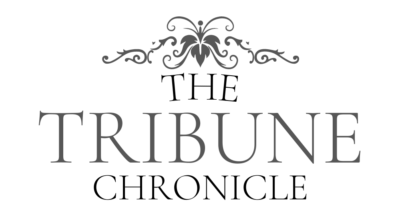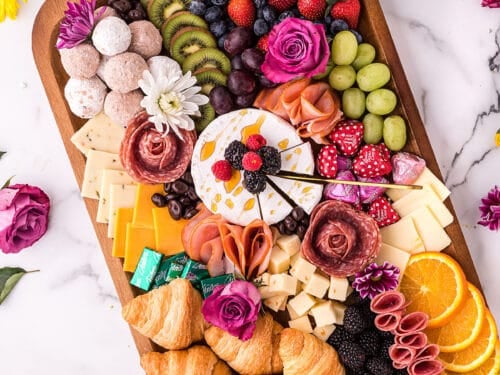If you are looking for a simple way to add a significant amount of flair to the dessert table this year, you may simply do it by adding a charcuterie or dessert table. Dessert boards are the ideal way to celebrate any event or holiday, no matter the occasion or the date.
The key to a stunning presentation lies not only in the manner in which the board is constructed but also in the elements that are shown on it. Whether you’re looking for a masterpiece sweet treat for Thanksgiving or a show-stopper for Valentine’s Day, we’ve got you covered.
On the other side, the dessert table or bar typically receives the greatest attention during weddings, as it should. As an alternative to the conventional multi-tiered wedding cakes, many modern couples serve dessert at their wedding receptions using a separate table.
After dinner treats are available in the dessert bar at the wedding, and guests can’t get enough of them. They maintain their return.
As a result of this, dessert wedding table decorations have developed over time, and merchants now construct them with more significance, colors, arrangement, and styles.
Nowadays, people take into account things like the wedding’s theme, the couple’s preferred sweets, the color palette, and various cultural accents.
In this article we look at what is the difference between charcuturie and dessert table by look at each of these deserts and what they entail.
What Is Charcuterie?
The phrase “charcuterie” is simply a more elegant term for “cured beef.” The term has its roots in French culture from the 15th century, during a time when people used every last part of the flesh and did not throw anything out.
After going through the process of curing to preserve it, the meat was frequently cured in dry conditions or shaped into some kind of sausage before being consumed.
Keep in mind that there was no such thing as refrigeration at this time, thus salt, vinegar, and smoke were all necessary components in the process of meat preservation.
Although pork is the most common sort of meat to be referred to by this phrase, other types of cured meats may also be included.
The term “charcuterie” is derived from two French words: “chair,” which translates to “flesh,” and “cuit,” which translates to “cooked.”
In spite of the fact that you can find establishments similar to charcuterie all over Europe, providing cured meats and accompaniments, the trend and appreciation of charcuterie didn’t truly take off in the United States until relatively recently.
Why is it that everyone is so obsessed with charcuterie boards? Charcuterie, in addition to providing an artistic presentation that pictures exceptionally well on social media platforms, brings together all of your favorite small bites in one location.
What was once referred to as a posh “meat and cheese board,” is now considered a more sophisticated alternative for an appetizer.
Charcuterie boards are no longer a fleeting cuisine craze and have instead evolved into a culinary standard that may be found on the menus of restaurants, as well as at events that are catered.
The correct pronunciation of this French word is shahr-KOO-tuh-ree, in case you were still unsure about how to say it.
Either educate yourself on the history of charcuterie or get started on creating your very own board by reading up on the subject.
History of Charcuterie
There is a traditional definition of charcuterie, and there is also a current meaning that needs to be taken into consideration.
Charcuterie is a time-honored French culinary craft that focuses on the preparation of cured meats and other meat-based items. Its origins date back to the 15th century in France.
A charcutier is the name given to a French chef who prepares food in the style of charcuterie (shar-KOO-tee-ay).
The term “charcuterie” has expanded to encompass a wider variety of meals and presentation boards since we first coined the term.
The traditional cheese board that is present at every family get-together over the holidays has evolved into a culinary masterpiece as a result of the addition of additional finger foods such as sliced fruits, olives, nuts, and dips.
Additionally, there are several charcuterie trends like as dessert boards, breakfast boards, and even vegan boards that you may find. It has been discovered that a cutting board is not required in order to prepare charcuterie.
You now have a portable, single-serving charcuterie option by simply placing your components in a paper cone or jar (sometimes known as “jarcuterie”).
What is Dessert Table?
A dessert table, commonly referred to as a “sweet table,” is an upgrade from the candy buffets that you might have seen at other people’s weddings.
To be more specific, a Sweet Stylings Sugar Bar dessert table is a selection of exquisitely styled and designed sweets that have been arranged in an artistic display, most commonly on a table but sometimes in the form of a “station,” from which guests can choose and sample various types of confections which is very common these days in singapore to have a birthday table decoration especially when you are hosting baby showers, first birthday and more.
Sugar Bars are created with color, fabric, pattern, and texture studies as their primary sources of inspiration; as a result, they are intended to be incredibly visually stimulating experiences that will wow your visitors with all the different mini cupcakes singapore, pop cakes and more.
Difference between charcuturie and dessert table
The phrase “charcuterie” is essentially a fancier way of referring to “cured meat,” which refers to meat that has been preserved by a technique called “curing,” and the meat is typically fashioned into some kind of sausage or dry-aged meat.
A dessert table, on the other hand, is a collection of exquisitely fashioned and prepared desserts that are arranged in an artistic display, typically on a table or set up as a “station,” where guests can select and enjoy various kinds of sweets.
Charcuterie Boards are popular and delightful dessert plates that are packed with bite-size goodies, chocolates, candies, fruit, and dips. They are also known as “charcuterie” boards.
A standard charcuterie board will normally have an assortment of cheeses, cured meats, nuts, olives, dried fruit, and other sweet and savory accompaniments, whereas a dessert bar will include after-meal goodies that visitors simply cannot get enough of.

